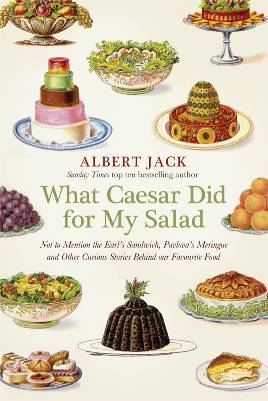Originally known simply as rolled oat biscuits (rather like oatcakes), these are made from a simple recipe of oats, golden syrup and coconut.
At the beginning of the First World War, women in Australia and New Zealand began baking huge numbers and shipping them off to the soldiers of the Australian and New Zealand Army Corps.
They choose this variety of biscuit because it would keep well during the long journey. The military, meanwhile, stamped the crates ‘ANZAC’ to ensure they reached the correct regiments on arrival, and the name stuck.
Soldiers eagerly awaited their Anzac biscuits, because they made a nice change to their usual rations and reminded them of home.
In 1921 the recipe appeared in a New Zealand cookbook for the first time as Anzac crispies. At around the same time, commercial production of the biscuit began to raise funds for the Returned and Services League of Australia (RSL) and the Royal New Zealand Returned and Services’ Association (RSA) and there is now a traditional association between the biscuit and Anzac Day, the day of remembrance held on 25 April each year.
That is the date of the beginning of the doomed Gallipoli campaign in 1915, during which over 10,000 men died but in the process demonstrating a courage, stoicism and good humour later characterized as the ‘Anzac spirit.’
The Anzac trademark is protected by Australian law, meaning that, technically speaking, if you make these at home you are not allowed to call them Anzac biscuits without the permission of the Australian government. But I promise not to tell anyone if you do.
To take the cake is an American expression, although also commonly used in the UK, meaning to be outrageous enough to deserve merit. A stunt pilot or racing driver, for example, might ‘take the cake’ for his audacity.
It has been recorded that this phrase originated in the late nineteenth century among black slaves working on the southern plantations in America.
It seems they devised a game whereby couples would parade arm in arm around a barn and were judged by the others on the style and grace of their walk. The winning couple would be given a cake as a prize and the most flamboyant and entertaining of them could expect to hear cries of ‘they take the cake.’
This pastime was known as the cakewalk, which is also a well-known expression for something that is easy to achieve.
However, it is quite possible that the root of this expression goes back much earlier, to the Bible in fact. As missionaries converted large parts of Africa to Christianity, teaching from the Bible became widespread.
For most inhabitants of the region it was likely to have been the only book they had ever read; thus its influence was profound.
There is one story, for instance, telling how a biblical knight would be rewarded with a cake made of toasted cereal, sweetened with honey, if he was judged the most successful knight either in battle or in the workplace.
There is strong evidence to suggest that African Americans adopted this reward after learning about the tale.
However, anybody competing in the cakewalk who was considered rather too flamboyant and cheeky would be brought back down to earth by being awarded a biscuit instead. They had taken the biscuit (gone too far). – Albert Jack
Albert Jack AUDIOBOOKS available for download here

